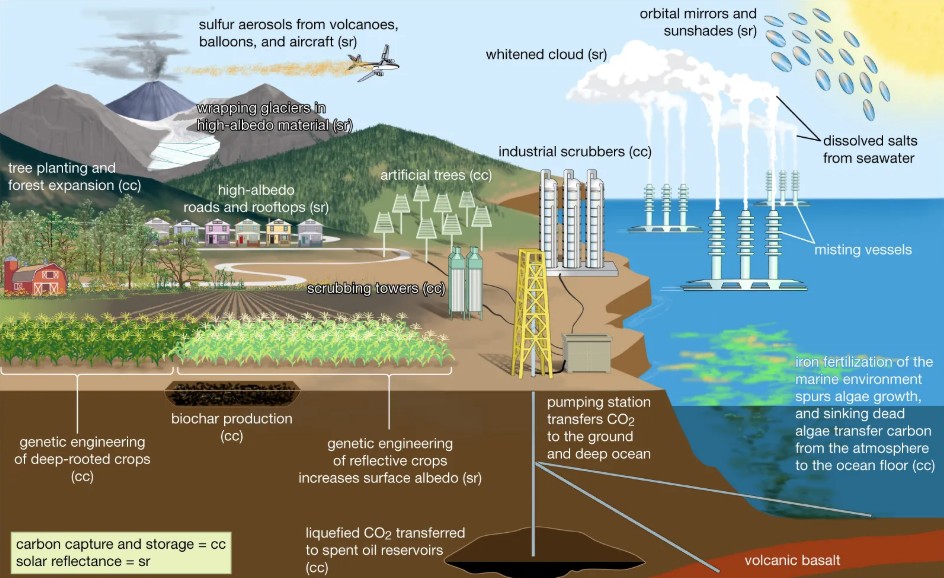As the climate crisis intensifies, innovative solutions are being proposed to mitigate global warming.
Among them, solar radiation modification (SRM) technologies like space mirrors and cloud whitening have emerged. These tools aim to reflect sunlight away from Earth, potentially cooling the planet.
However, the European Commission’s scientific advisers have raised concerns about their untested nature and potential risks, urging a ban on their use while still leaving room for research.
SRM technologies, often referred to as solar geoengineering, have sparked significant debate.
Proponents argue that with global temperatures edging closer to the 1.5°C limit above preindustrial levels, such technologies could offer a temporary solution to prevent further warming.
However, critics assert that these technologies do not address the root cause of climate change—the heat-trapping greenhouse gases—and could lead to unforeseen consequences like extreme weather patterns.
Barbara Prainsack, chair of the European Group on Ethics in Science and New Technologies, cautions against presenting SRM as a fix for climate change.
“Even if some of these proposals could address the symptoms of climate change, they do not address the cause,” she states. The European Commission’s scientific advisors agree, highlighting the “deep uncertainties” surrounding SRM and its potential risks.

Instead, the advisors recommend focusing efforts on reducing greenhouse gas emissions, which remain the most effective way to combat climate change.
While the EU calls for a moratorium on SRM deployment, it also urges international collaboration on establishing a regulatory framework for any future use of such technologies.
Ensuring that research is conducted ethically and does not divert attention from essential emission reductions is a key priority.
Despite the controversy, some scientists believe further research is necessary. The fear is that if research into SRM is banned, it could lead to unchecked use by rogue entities or governments.
The EU’s stance is clear: any future development must be regulated globally, with strict oversight to prevent misuse.
As the debate continues, Europe’s leadership in climate policy remains pivotal. A balance must be struck between exploring new technologies and staying committed to proven methods that reduce emissions and protect the planet.

